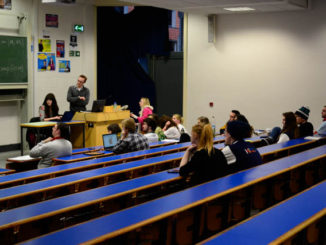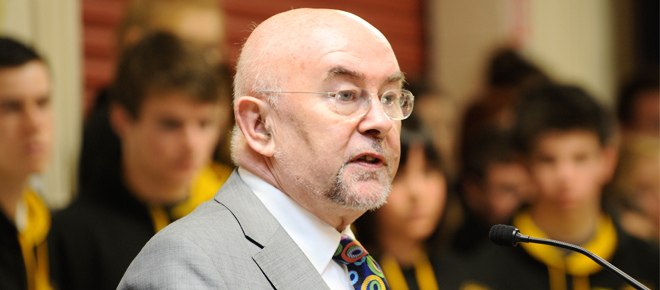
DCU President Professor Brian MacCraith has called for the implementation of a digital learning strategy to ensure Ireland is not left behind in the “online education revolution”.
Speaking in a keynote address as part of the Seamus Heaney lecture series at St. Patrick’s College, Drumcondra, he said the focus on new structures for Irish third-level institutions has distracted educators from “the big issues in education globally”. Chief amongst these issues is the massive impact technological developments are having on how education is provided internationally.
One technology-led format of education provision with the potential to change education systems internationally is that of Massive Open Online Courses (MOOCs). MOOCs are free online courses, available to all who wish to participate.
Having just recently begun to provide MOOCs, the Massachusetts Institute of Technology (MIT) already has more students enrolled on online courses than the total number of alumni in its 150-year history.
DCU’s new Centre for Digital Learning, which aims to transform student learning both on-campus and online, is currently developing Ireland’s first MOOC.
An advocate for ‘blended learning’, Professor MacCraith was critical of the 2010 Hunt Report on higher education for its failure to present a vision for online learning. In 2011 he presented a five-year road map for online learning, which had amongst its objectives to have over 80% of DCU’s programmes available in blended / online format by 2015.
All of DCU’s Oscail ,Distance Education degree and masters programmes, are currently delivered online.
The Irish Learning Technology Association (ILTA) and the National Digital Learning Resources (NDLR) service at the Centre for Teaching and Learning at Univeristy Limerick are the main bodies promoting and supporting providers of technology-enhanced education in Ireland. One such digital learning resource that allowed DCU to provide an online teaching module to staff from higher education institutions in Dublin is Blackboard Collaborate, a web-conferencing tool that allows participants to interact in a virtual classroom.
According to Prof MacCraith, the availability of free open education courses online will lead to dramatic changes in the role of the educator. “The traditional model of instruction, where students go to class and listen to the lecturer or teacher and then head off on their own to complete homework, will be inverted”, he said.
Sarah Bermingham




Leave a Reply